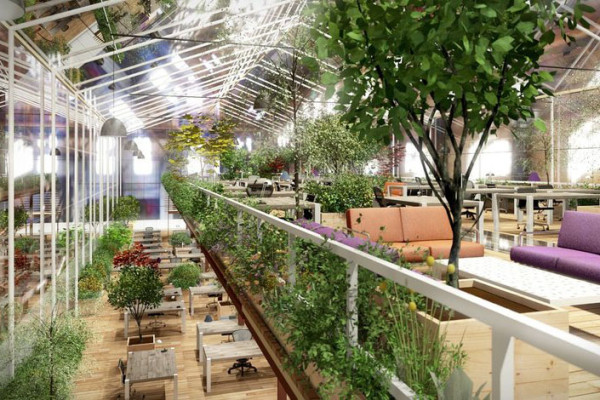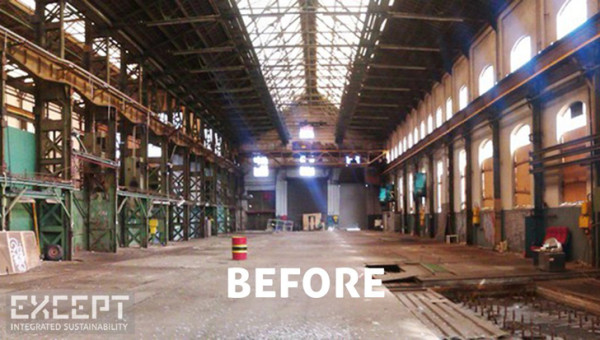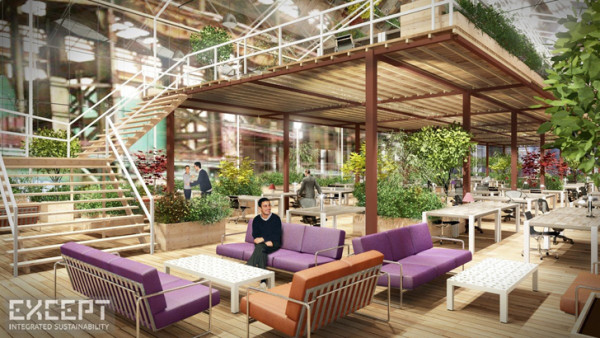Over the last few decades, as industrialization has waned in many parts of the Western world, hundreds of shuttered factories and warehouses have been renovated as new mixed-used facilities or tourist attractions. The vast majority of these adaptive reuse projects, however, have been custom-made retrofits, with little thought to expanding the renovation design to other spaces.
Except, a Dutch sustainable development cooperative, wants to change the strategy of these conversion projects by focusing on the modular deployment of multiple renovated spaces rather than designing bespoke retrofits site by site. The result is Crystal Forest, a green-office concept that can be deployed quickly and cost-effectively within a wide range of large spaces.

The idea for the Crystal Forest came from Excerpt’s search for its own new headquarters, located in a warehouse at an abandoned shipyard in Amsterdam. By adding a series of greenhouse-like “cocoon” structures within the cavernous halls of these buildings, any warehouse can became an energy-neutral office space

The units include a suspended mezzanine level to increase floor space for workstations, as well as abundant greenery to help absorb CO2 and add moisture and oxygen to the environment, which improves indoor air quality. Other optional units that are equipped with hydroponic and aquaponic systems can also be added to grown certain kinds of food on site.

“We realized this makes sense in so many other places, there’s empty industrial real estate everywhere,” said the Except designers on their website. “So we put our own office plans on hold for a bit, and started working on a universal concept, available to everyone.”
Rather than spend money upgrading the often outdated or dilapidated infrastructure at many of these abandoned sites, the Crystal Forest units are entirely self-contained, with heating and ventilation systems, plus rainwater collection capability to help irrigate the indoor vegetation.
Most importantly, should the needs of these retrofitted office spaces change, the Crystal Forest concept can be adapted to a number of new configurations. They can also be disassembled entirely and moved to a new location, if needed, adding to the material value of these modular systems and providing greater opportunities for a return on investment.
Except has turned the Crystal Forest concept into a turnkey business model that can be deployed in a variety of enclosed office spaces, starting at a minimum of 4,300 square feet. “We offer this service, complete down to the internet connection, reception staff and coffee machines,” the Except site says.